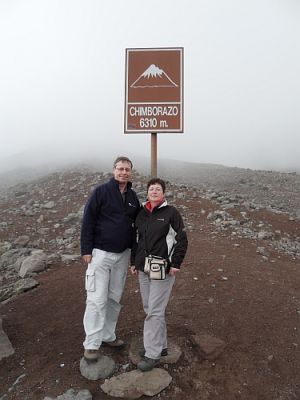PhysOrg.com, Sep. 11, 2008
Our brains contain their own navigation system much like satellite navigation ("sat-nav"), with in-built maps, grids and compasses, neuroscientist Dr Hugo Spiers told the BA Festival of Science at the University of Liverpool today.
The brain's navigation mechanism resides in an area know as the hippocampus, which is responsible for learning and memory and famously shown to be different in London taxi drivers in a Wellcome Trust-funded study carried out by Professor Eleanor Maguire at UCL (University College London).
The study showed that a region of the hippocampus was enlarged in London taxi drivers compared to the general population. Even bus drivers do not have the same enlarged area, and general skill at navigating is not related to hippocampus size, suggesting that the difference is linked to 'The Knowledge' of the city's 250,000 streets built up by taxi drivers over many years.
In a follow-up study, Dr Spiers and Professor Maguire used the Playstation2 video game "The Getaway" to examine how taxi drivers use their hippocampus and other brain areas when they navigate. Taxi drivers used the virtual reality simulation to navigate the streets of London whilst lying in an fMRI brain scanner. The researchers found that the hippocampus is most active when the drivers first think about their route and plan ahead. By contrast, activity in a diverse network of other brain areas increases as they encounter road blocks, spot expected landmarks, look at the view and worry about the thoughts of their customers and other drivers.
"The hippocampus is crucial for navigation and we use it like a 'sat nav'," says Dr Spiers from the Institute of Behavioural Neuroscience at UCL. "London taxi drivers, who have to know their way around hundreds of thousands of winding streets, have the most refined and powerful innate sat navs, strengthened over years of experience."
In their study, Dr Spiers and Professor Maguire found that a part of the brain called the medial prefrontal cortex increased its activity the closer the taxi drivers came to their destination. However, it is still unclear how the brain knows which way we need to go to reach our destination, and it is this question which is the subject of Dr Spiers's ongoing research, also funded by the Wellcome Trust.
Read the whole story>>
Our brains contain their own navigation system much like satellite navigation ("sat-nav"), with in-built maps, grids and compasses, neuroscientist Dr Hugo Spiers told the BA Festival of Science at the University of Liverpool today.
The brain's navigation mechanism resides in an area know as the hippocampus, which is responsible for learning and memory and famously shown to be different in London taxi drivers in a Wellcome Trust-funded study carried out by Professor Eleanor Maguire at UCL (University College London).
The study showed that a region of the hippocampus was enlarged in London taxi drivers compared to the general population. Even bus drivers do not have the same enlarged area, and general skill at navigating is not related to hippocampus size, suggesting that the difference is linked to 'The Knowledge' of the city's 250,000 streets built up by taxi drivers over many years.
In a follow-up study, Dr Spiers and Professor Maguire used the Playstation2 video game "The Getaway" to examine how taxi drivers use their hippocampus and other brain areas when they navigate. Taxi drivers used the virtual reality simulation to navigate the streets of London whilst lying in an fMRI brain scanner. The researchers found that the hippocampus is most active when the drivers first think about their route and plan ahead. By contrast, activity in a diverse network of other brain areas increases as they encounter road blocks, spot expected landmarks, look at the view and worry about the thoughts of their customers and other drivers.
"The hippocampus is crucial for navigation and we use it like a 'sat nav'," says Dr Spiers from the Institute of Behavioural Neuroscience at UCL. "London taxi drivers, who have to know their way around hundreds of thousands of winding streets, have the most refined and powerful innate sat navs, strengthened over years of experience."
In their study, Dr Spiers and Professor Maguire found that a part of the brain called the medial prefrontal cortex increased its activity the closer the taxi drivers came to their destination. However, it is still unclear how the brain knows which way we need to go to reach our destination, and it is this question which is the subject of Dr Spiers's ongoing research, also funded by the Wellcome Trust.
Read the whole story>>


Geen opmerkingen:
Een reactie posten